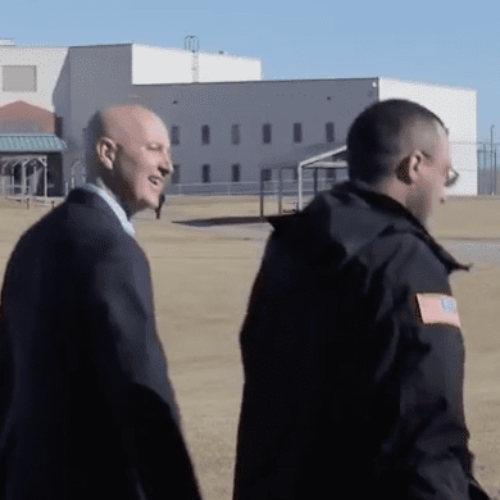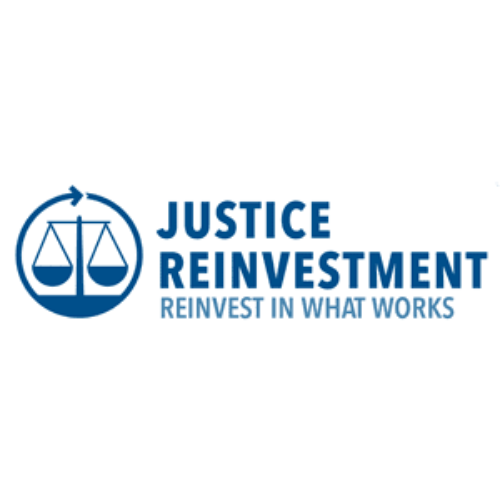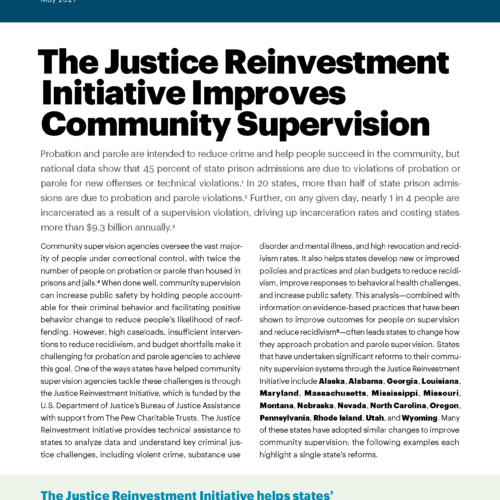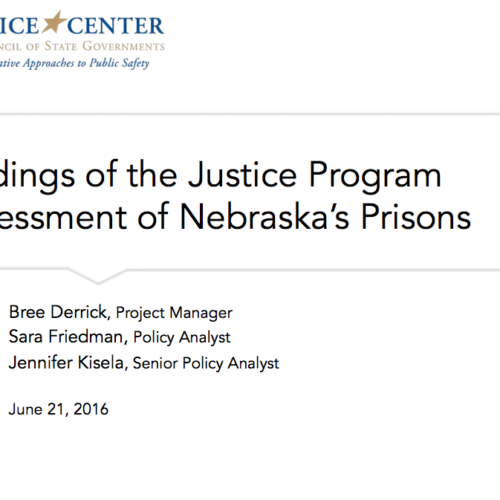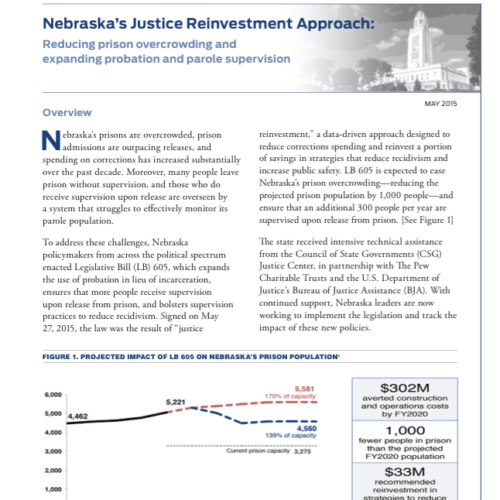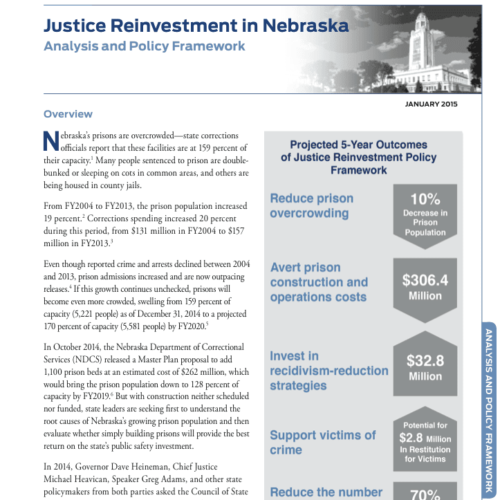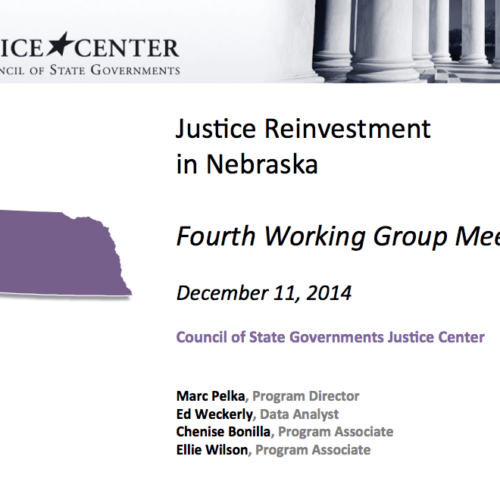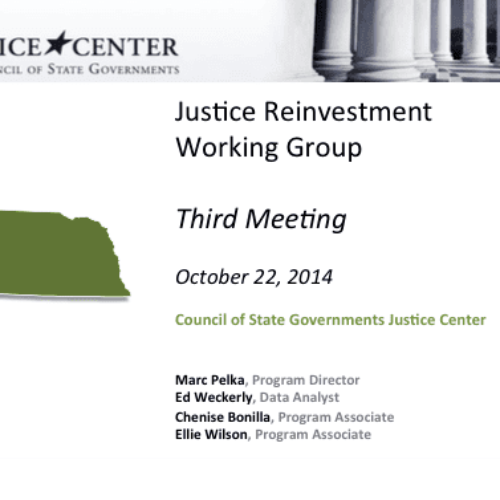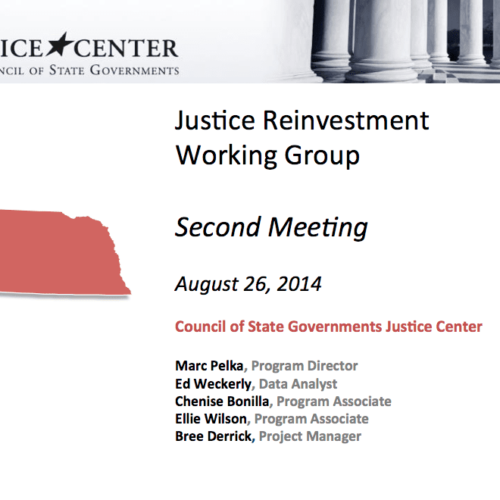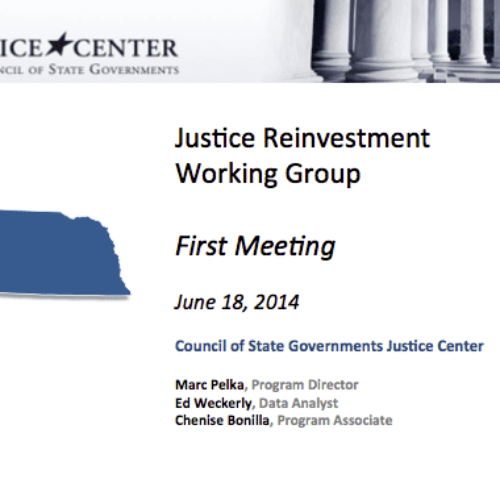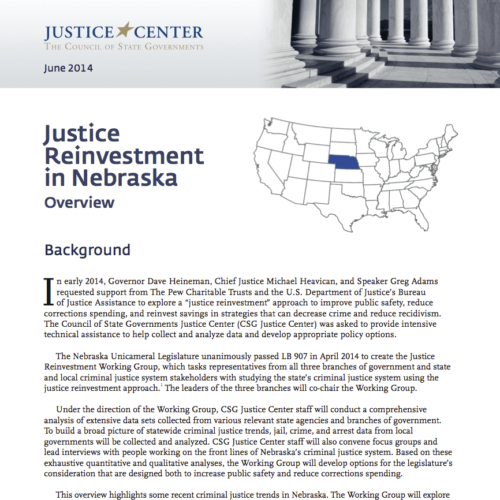Justice Reinvestment in Nebraska
The Problem
In 2014, Nebraska’s prisons were operating at 159 percent of capacity and were expected to reach 170 percent of capacity by 2020. While Nebraska’s resident population and prison admissions were growing, total numbers of reported crime and arrests declined from 2004 to 2013. Further, many people left prison without supervision.
How JRI Helped
From 2014 to 2015, CSG Justice Center experts analyzed data, interviewed stakeholders from across the state’s criminal justice system, and worked with Nebraska leaders to develop data-driven policy options designed to reduce prison overcrowding, avert spending on corrections, and increase public safety. As a result of this process, state policymakers enacted Justice Reinvestment legislation (LB 605) in May 2015. Among other provisions, the law
- Requires the use of probation rather than incarceration for most people convicted of nonviolent, low-level offenses;
- Ensures post-release supervision for most people upon release from prison;
- Supports victims through improved restitution collection; and
- Strengthens parole supervision to reduce recidivism.
Implementation and Impacts
If successfully implemented, the law was projected to help the state avoid up to $262 million in construction costs and $40 million in operating costs that would otherwise be needed to accommodate a forecasted prison population growth of 7 percent by 2020. The state reinvested $3.2 million for 2016 and $12.1 million for 2017 for additional probation officers, community-based programs and treatment, improvements to parole supervision, quality assurance measures, and financial assistance to county jails.
In the four years following LB 605’s enactment contributions toward restitution obligations by people on supervision exceeded $5.5 million.
The CSG Justice Center provided technical assistance to Nebraska on the implementation of its Justice Reinvestment policies. In particular, CSG Justice Center staff conducted an in-depth assessment of the state’s rehabilitative programming in prisons to better understand their effectiveness. In addition, CSG Justice Center staff assisted the state by
- Encouraging the use of swift, certain, and proportionate responses to violations of probation supervision;
- Ensuring the use of swift, certain, and proportionate responses to violations of parole supervision;
- Strengthening and streamlining parole release decision-making;
- Improving data collection and cross-reporting across state agencies and stakeholders; and
- Streamlining reentry for people leaving prison through improved interagency collaboration.











